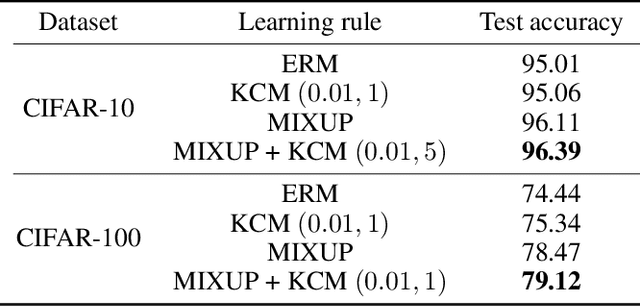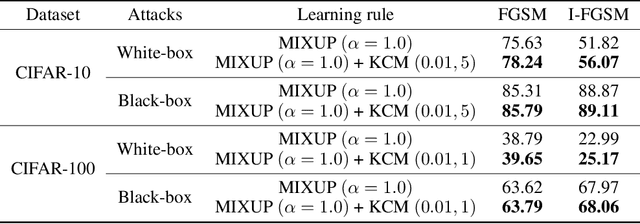Kernel-convoluted Deep Neural Networks with Data Augmentation
Paper and Code
Dec 24, 2020



The Mixup method (Zhang et al. 2018), which uses linearly interpolated data, has emerged as an effective data augmentation tool to improve generalization performance and the robustness to adversarial examples. The motivation is to curtail undesirable oscillations by its implicit model constraint to behave linearly at in-between observed data points and promote smoothness. In this work, we formally investigate this premise, propose a way to explicitly impose smoothness constraints, and extend it to incorporate with implicit model constraints. First, we derive a new function class composed of kernel-convoluted models (KCM) where the smoothness constraint is directly imposed by locally averaging the original functions with a kernel function. Second, we propose to incorporate the Mixup method into KCM to expand the domains of smoothness. In both cases of KCM and the KCM adapted with the Mixup, we provide risk analysis, respectively, under some conditions for kernels. We show that the upper bound of the excess risk is not slower than that of the original function class. The upper bound of the KCM with the Mixup remains dominated by that of the KCM if the perturbation of the Mixup vanishes faster than \(O(n^{-1/2})\) where \(n\) is a sample size. Using CIFAR-10 and CIFAR-100 datasets, our experiments demonstrate that the KCM with the Mixup outperforms the Mixup method in terms of generalization and robustness to adversarial examples.
 Add to Chrome
Add to Chrome Add to Firefox
Add to Firefox Add to Edge
Add to Edge